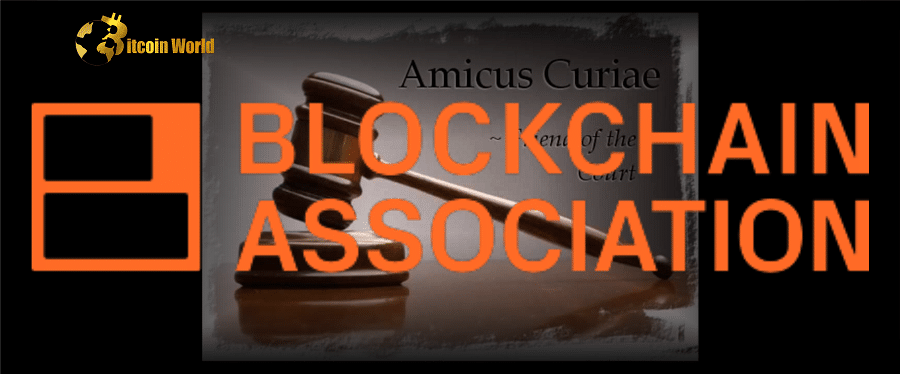- Blockchain Association files amicus brief in Coinbase v. SEC
The crypto lobbying group claims that the SEC is engaging in “absentee enforcement” because the creators of the nine tokens at the heart of the insider trading case are unconnected to the case.
The Securities and Exchange Commission (SEC) of the United States is attempting to create a “chilling effect” on the blockchain industry by classifying nine tokens at the center of an insider trading case as securities while not allowing the token creators to defend themselves.
Last year, the SEC filed a complaint against former Coinbase manager Ishan Wahi for informing his brother and a close friend about new token listings on Coinbase. Wahi changed his plea from not guilty to guilty to insider trading charges earlier this month. Wahi is still fighting the charges of securities fraud.
AMP, XYO, LCX, POWR, RLY, RGT, DDX, DFX, and KROM are among the tokens in question. According to CoinGecko data, these tokens trade in relatively low volume and do not rank among the top 150 tokens tracked by the service.
Wahi’s lawyers argued in court that these tokens are not securities and thus he cannot be charged with securities fraud.
The Blockchain Association, a Washington-based crypto lobbying group, is attempting to advance that argument by claiming that the SEC is engaging in “absentee enforcement” because the token creators are not involved in the case and cannot, by statute, intervene or be heard.
“Such behavior is inappropriate for a government agency and is incompatible with due process concerns,” according to the docket. “The SEC’s motive, then, is merely to backdoor a precedent that can be used in other cases, as it is already doing in other cases where the DOJ has brought an action and the SEC has piled on with similar allegations of securities law violations against absent third parties,” the court writes.
In a complaint filed against FTX co-founder Gary Wang and former Alameda Research CEO Caroline Ellison in late December, the SEC labeled FTX’s former exchange token FTT as a security. As part of a plea agreement, neither Ellison nor Wang contested the complaint.
“Rather than pursue proper rulemaking under the [Administrative Procedure Act] to address those issues, the SEC has instead issued a long history of inconsistent, incomplete, and confusing public statements,” according to the docket. “Now, the SEC extends its doctrine of ‘regulation by enforcement’ to ‘regulation by unchallengeable allegation’.
The Administrative Procedure Act (APA) is a statute that defines administrative law procedures and how federal administrative agencies make rules and make decisions.
The docket describes in great detail, including prior cases, how digital asset laws and prior SEC enforcement make the United States an opaque and confusing jurisdiction to do business in for the digital asset industry. Throughout, the SEC’s actions have caused significant changes in the value of the tokens.
“The SEC’s pronouncement that a particular token is a security has already resulted in delisting from cryptocurrency trading platforms,” according to the docket, citing Binance.delisting US’s of one of the tokens due to a “abundance of caution.”
Wahi is scheduled to appear in court again on April 6. Wahi’s attorneys have filed a motion to dismiss the SEC’s complaint for securities fraud, arguing that the tokens in question are not securities, despite the fact that he has pleaded guilty to insider trading and other charges.
Disclaimer: The information provided is not trading advice, Bitcoinworld.co.in holds no liability for any investments made based on the information provided on this page. We strongly recommend independent research and/or consultation with a qualified professional before making any investment decisions.

